The round of 18 ended: Qatar had the largest gap, and Indonesia became the only dark horse
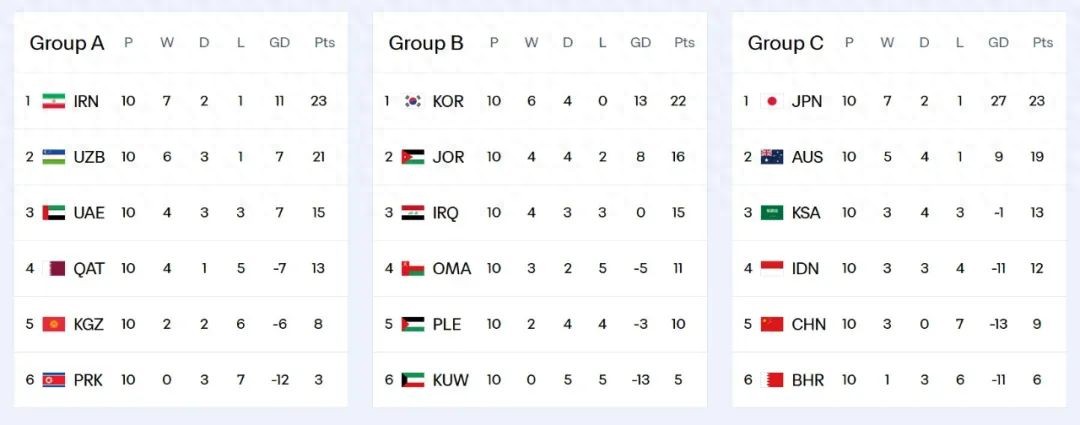
Written by Han Bing With Oman striker Sabsi scoring a penalty in the seventh minute of stoppage time, Palestine's dream of reaching the play-off for the first time in history was shattered at the last minute, and the nine-month round of 18 came to an end.
After Japan, Iran, Uzbekistan, Jordan and South Korea, Australia secured the final direct qualification spot, with the six play-off teams being the UAE and Qatar in Group A, Iraq and Oman in Group B, and Saudi Arabia and Indonesia in Group C.
The AFC will hold a draw-off draw for the play-offs on July 17, and Saudi Arabia, the United Arab Emirates, Qatar and Iraq have already applied to host the play-offs, but Saudi media revealed that Saudi Arabia and Qatar will host the two group matches of the play-offs. The play-offs will be played in a single round-robin on October 8, 12 and 14, with the first place in each group qualifying directly. The second-placed teams in each group will play over two legs, home and away, on 13 and 18 November, with the winners competing for the final two qualifying spots in the six-team intercontinental play-offs in North America next March.
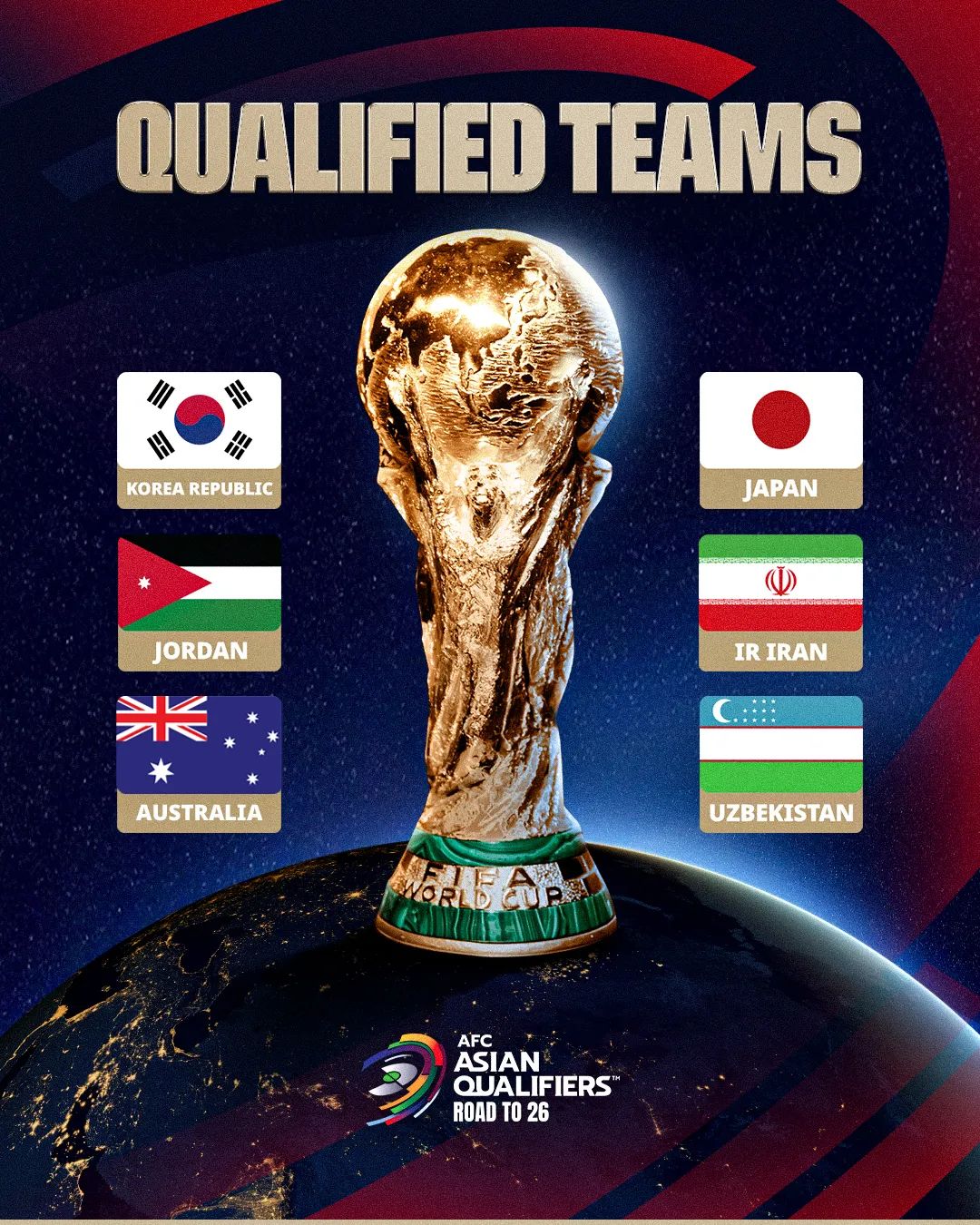

The dust has settled in the round of 18, and judging from the original draw, the final result is basically in line with the strength of the 18 teams defined by the ranks. In the first pot, Japan, Iran and South Korea all qualified early, and the six teams that qualified directly were all from the top three pots. After the round of 18, only Qatar, which ranked 5th, did not qualify directly from the top 5 teams in Asia.
Japan still has a cliff-like lead, and the advantage continues to expand. Scoring 30 goals in 10 games in the group stage is the most goals scored since the final stage of the 1998 World Cup Asian qualifiers, and no team has ever scored more than 20 goals in a single tournament before.
Japan's previous single-game goal record was 17 goals, and this year's South Korea team (20 goals) defeated Kuwait 4-0 in the last game, also setting a new record for goals in team history, second only to Japan.
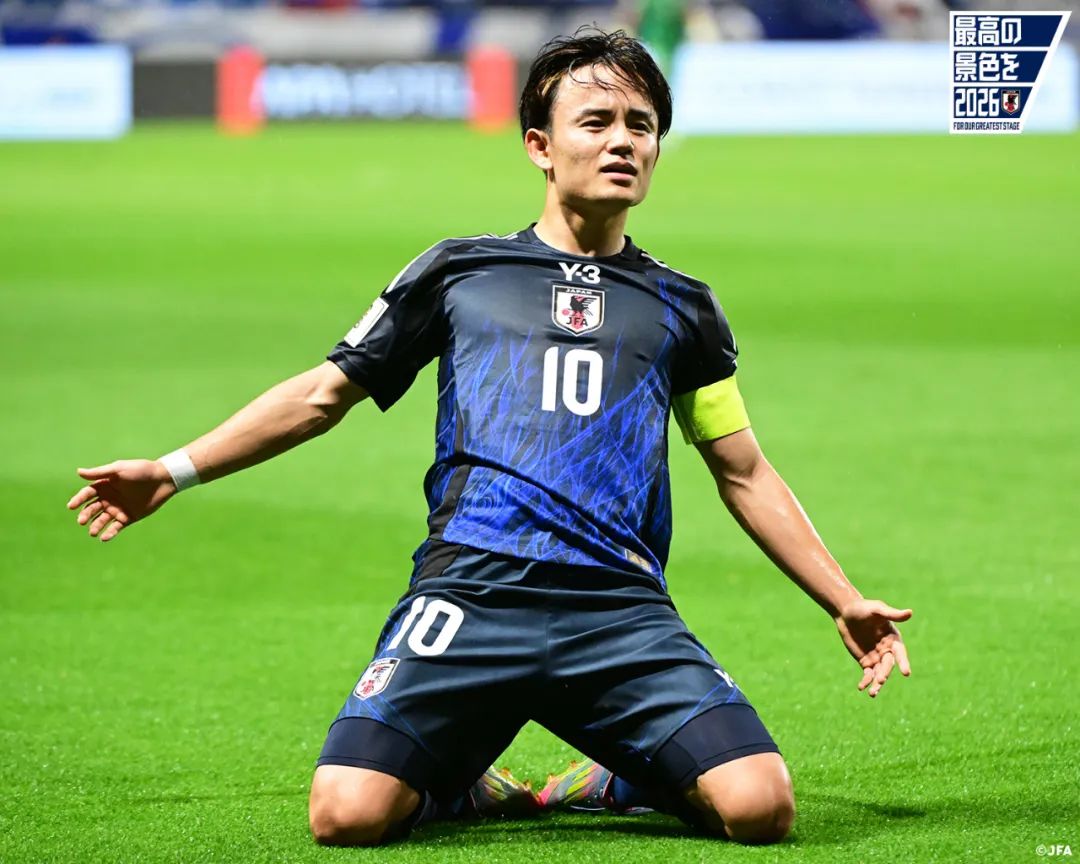
In addition, Japan has conceded three goals equal to South Korea in the 2022 Top 10, only more than the national football team in the 2002 Top 10, Iran in the 2014 and 2018 Top 10 (2 goals), Saudi Arabia in the 2006 Top 8, and Australia in the 2010 Top 10 (1 goal).
Uzbekistan and Jordan, which seem to be dark horses, have exploded in recent years, and the latter is the runner-up of last year's Asian Cup and the top three teams. Of the 12 teams in the top 4 brackets of the round of 18, 11 teams entered the top 4 of the group and qualified directly or entered the play-offs. Only Pot 6, Indonesia, who has been naturalized in batches to play in the Europa League, became the only dark horse, jumping two gears to the play-offs.
Since the Asian zone of the top 10 in 1998, this is the third time that the UAE has participated in the play-offs after 2002 and 2022, and Saudi Arabia has participated in the play-offs for the second time since 2010.


During the round of 18, 9 teams changed 10 coaches, and the defending champion Qatar of the Asian Cup in Pot 2 changed twice. Most of the results of the nine coach-changing teams have improved significantly, and the nine teams that were winless in the first two games in September last year, and the five coach-changing teams (Australia, Indonesia, Qatar, Palestine, Oman) have at least left the suspense of qualifying until the end. In the end, Australia qualified directly, while Qatar, Indonesia and Oman qualified for the play-offs. The national football team, Kyrgyzstan, North Korea and Kuwait, which did not change coaches, were all out of the tournament ahead of schedule.
The performance of the team in the round of 18 is the biggest gap on paper, and it is Qatar, the defending champion of the Asian Cup. Qatar has recruited as many as 28 naturalized players, most of whom were born in Doha Hope Football School, spread across nine countries in the Arab world, in addition to 34-year-old Portuguese defender Pedro Miguel and Brazilian defender Lucas Mendes, as well as naturalized Brazilian striker Edmilsson. However, the team got off to a poor start, with Spain coach Marquez leading the team to only beat the underdog Kyrgyzstan at home in the first four rounds, and was held to a draw by North Korea, the weakest team in the group, at neutral venues.
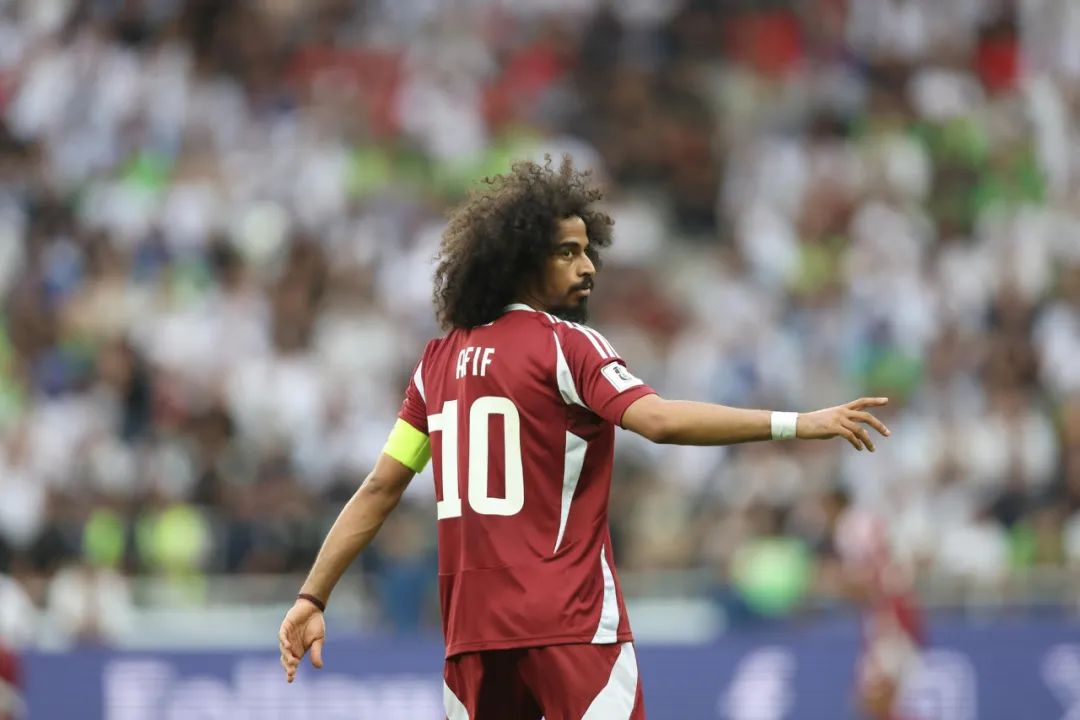
In November, he led the team to a 5-0 defeat at the United Arab Emirates, and the Qatar Football Federation replaced him with assistant coach Luis Garcia immediately. However, the successor was ousted again after being upset 3-1 away to Kyrgyzstan in March and was succeeded by former Spanish national team coach Julen Lopetegui. In June, they defeated Iran, who qualified early and had one less player, and only then did they win 1-0 to qualify for the play-offs. Qatar, who finished in second pot, finished fourth in Group A and entered the play-offs, conceding more goals (24) than the national football team, Indonesia and Kuwait (20 goals) for the most in the round of 18, but also tied Thailand, who were at the bottom of the group in the 2018 round of 10, and tied for the most goals conceded in a single tournament since the final stage of the 1998 Asian qualifiers.
In addition, the draw for the round of 18 ranked Iraq in Pot 2 ranked 3rd in the group to participate in the play-offs, the national football team in Pot 5 ranked 13th in Asia and 14th after the finish, and Bahrain in Pot 4 also performed at the bottom of the group below expectations.
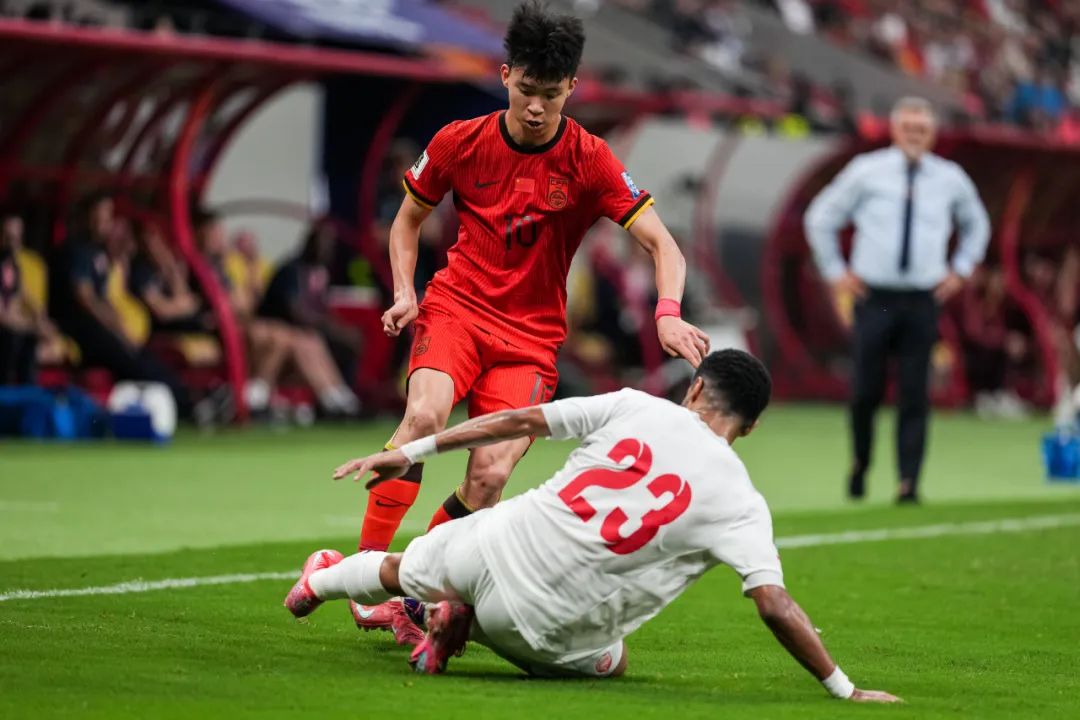

Although Japan, South Korea, and Oman, which have an all-local squad, have also entered the play-offs, naturalization is still the mainstream choice for the second- and third-rate Asian teams in the round of 18.
During the round of 18, Indonesia naturalized 8 powerful players who played in European and American leagues, and at least 9 naturalized players in the starting lineup. Goalkeeper Pais, defender Shirges and striker Rome Romeni played key roles, with the latter scoring in three consecutive games to give Indonesia back-to-back wins over Bahrain and the national football team to get the decisive six points into the play-offs. The UAE has 10 naturalised players, most of whom are foreign players who play in the UAE league. Iraq has 3 naturalized players and 16 naturalized players during the round of 18, surpassing Palestine (14) and the United Arab Emirates (13), and second only to Indonesia (20) and Qatar (28).

Among the 14 naturalized Palestinian players, defenders Ahmad Hamed, Taimanini and striker Abu Ali are the main players, and seven were naturalized during the round of 18. Naturalized striker Abu Ali of the Danish national youth team scored four goals, and he scored key goals in consecutive wins over Iraq and Kuwait, while winger Eyde, who was naturalized from the fire line of Breda in the Eredivisie, scored a brace against Iraq, giving Palestine in fifth pot hope of entering the play-offs. Unfortunately, in the final round, Oman was drawn in stoppage time and missed out on qualifying for the play-offs for the first time in team history.
The Jordanian team, which mainly relies on local players, has also recruited seven naturalized players during the round of 18. Centre-back Abinadi is the main force, while wing-back Assaf and midfielder Al-Nassr are the rotational players. Even the first tier teams in Asia such as Iran (1), Australia (4), Uzbekistan (1), and Saudi Arabia (5) have a small number of naturalized players, while the Japanese team has recruited a group of local mixed-race players to improve their strength.
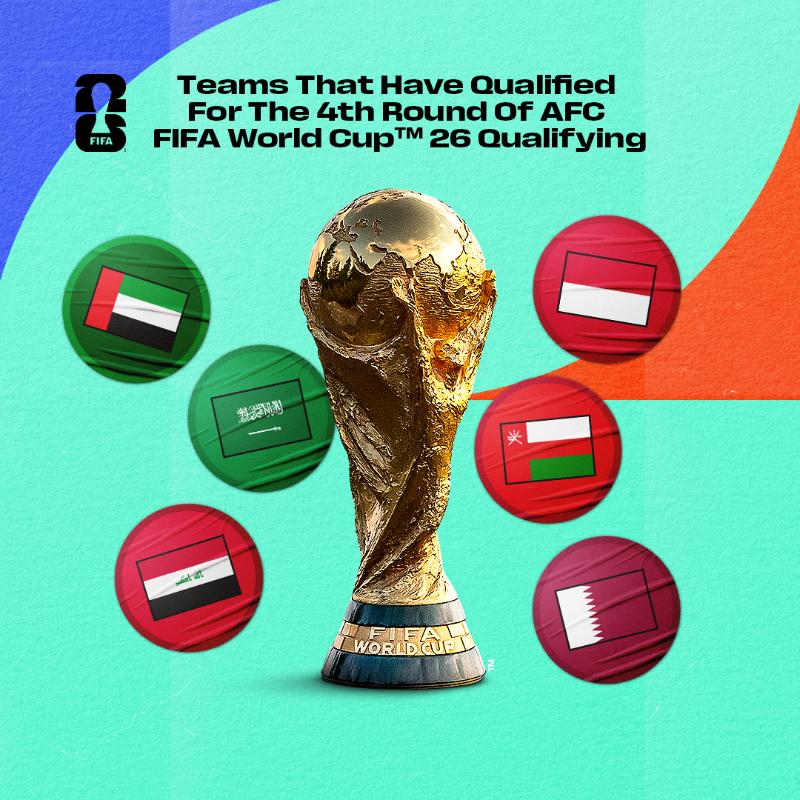


Wonderfulshortvideo

How many more for CR7? 👀🏆



🥇Memphis wins it!



Ronaldo on defensive duties 😤



The best tricks and flicks from matchday 3 and 4 🔥



User VictoryVox has posted a video.



User PlaymakerHub has posted a video.



User SportScoop has posted a video.








 Links
Links
 Contact
Contact
 App
App


